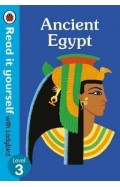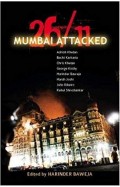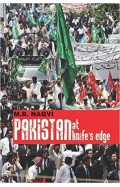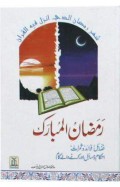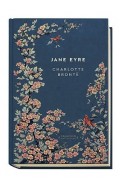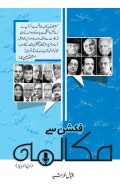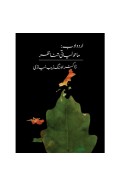Reading Lolita in Tehran
By: Azar Nafisi
-
Rs 200.00
- Rs 400.00
- 50%
You save Rs 200.00.
Due to constant currency fluctuation, prices are subject to change with or without notice.
We are offering a high discount due to slightly damage.
The inspirational tale of eight women who defied the confines of life in revolutionary Iran through the joy and power of literature.
'That room for all of us, became a place of transgression. What a wonderland it was! Sitting around the large coffee table covered with bouquets of flowers … We were, to borrow from Nabokov, to experience how the ordinary pebble of ordinary life could be transformed into a jewel through the magic eye of fiction.'
For two years before she left Iran in 1997, Azar Nafisi gathered seven young women at her house every Thursday morning to read and discuss forbidden works of Western literature. They were all former students whom she had taught at university. Some came from conservative and religious families, others were progressive and secular; several had spent time in jail. Shy and uncomfortable at first, they soon began to open up and speak more freely, not only about the novels they were reading but also about themselves, their dreams and disappointments. Their stories intertwined with those they were reading – ‘Pride and Prejudice’, ‘Washington Square’, ‘Daisy Miller’ and ‘Lolita’ – their Lolita, as they imagined her in Tehran. Nafisi's account flashes back to the early days of the revolution when she first started teaching at the University of Tehran amid the swirl of protests and demonstrations. In those frenetic days, the students took control of the university, expelled faculty members and purged the curriculum.
We are offering a high discount due to slightly damage.
The inspirational tale of eight women who defied the confines of life in revolutionary Iran through the joy and power of literature.
'That room for all of us, became a place of transgression. What a wonderland it was! Sitting around the large coffee table covered with bouquets of flowers … We were, to borrow from Nabokov, to experience how the ordinary pebble of ordinary life could be transformed into a jewel through the magic eye of fiction.'
For two years before she left Iran in 1997, Azar Nafisi gathered seven young women at her house every Thursday morning to read and discuss forbidden works of Western literature. They were all former students whom she had taught at university. Some came from conservative and religious families, others were progressive and secular; several had spent time in jail. Shy and uncomfortable at first, they soon began to open up and speak more freely, not only about the novels they were reading but also about themselves, their dreams and disappointments. Their stories intertwined with those they were reading – ‘Pride and Prejudice’, ‘Washington Square’, ‘Daisy Miller’ and ‘Lolita’ – their Lolita, as they imagined her in Tehran. Nafisi's account flashes back to the early days of the revolution when she first started teaching at the University of Tehran amid the swirl of protests and demonstrations. In those frenetic days, the students took control of the university, expelled faculty members and purged the curriculum.
Zubin Mehta: A Musical Journey (An Authorized Biography)
By: VOID - Bakhtiar K. Dadabhoy
Rs 892.50 Rs 1,050.00 Ex Tax :Rs 892.50
Ancient Egypt - Read it yourself with Ladybird: Level 3
By: Ladybird
Rs 947.50 Rs 1,895.00 Ex Tax :Rs 947.50
Myths Illusions and Peace: Finding a New Direction for America in the Middle East
By: Dennis Ross
Rs 766.50 Rs 1,095.00 Ex Tax :Rs 766.50
Operation Dark Heart: Spycraft And Special Ops On The Frontlines Of Afghanistan And The Path To Victory
By: Anthony Shaffer
Rs 1,697.50 Rs 3,395.00 Ex Tax :Rs 1,697.50
Anna Hazare: The Face Of Indias Fight Against Corruption
By: Pradeep Thakur
Rs 255.00 Rs 300.00 Ex Tax :Rs 255.00
How To Win A Cosmic War God Globalization And The End Of War
By: Reza Aslan
Rs 625.50 Rs 695.00 Ex Tax :Rs 625.50
A Long Time Comming: The Inspiring Combative 2008 Campaign And
By: Evan Thomas
Rs 597.50 Rs 1,195.00 Ex Tax :Rs 597.50
Ancient Egypt - Read it yourself with Ladybird: Level 3
By: Ladybird
Rs 947.50 Rs 1,895.00 Ex Tax :Rs 947.50
Ramzan-ul-Mubarak (Fazail-o-Fawaid Aur Ahkam-o-Masail) - SHORT BOOK
By: Hafiz Salah ud Din Yousuf
Rs 114.75 Rs 135.00 Ex Tax :Rs 114.75
Little Book of Valentino - The Story of the Iconic Fashion House
By: Karen Homer
Rs 3,595.50 Rs 3,995.00 Ex Tax :Rs 3,595.50
The Penguin Book of Japanese Short Stories (Penguin classics)
By: Jay Rubin
Rs 2,785.50 Rs 3,095.00 Ex Tax :Rs 2,785.50
The Secret Garden (International edition)
By: Frances Hodgson Burnett
Rs 1,615.50 Rs 1,795.00 Ex Tax :Rs 1,615.50
Wednesday: A Novelisation of Season One
By: Tehlor Kay Mejia
Rs 2,065.50 Rs 2,295.00 Ex Tax :Rs 2,065.50
Uncle Johns Bathroom Reader Vroom!
By: Bathroom Reader Institude
Rs 4,585.75 Rs 5,395.00 Ex Tax :Rs 4,585.75
Zubin Mehta: A Musical Journey (An Authorized Biography)
By: VOID - Bakhtiar K. Dadabhoy
Rs 892.50 Rs 1,050.00 Ex Tax :Rs 892.50
Ancient Egypt - Read it yourself with Ladybird: Level 3
By: Ladybird
Rs 947.50 Rs 1,895.00 Ex Tax :Rs 947.50













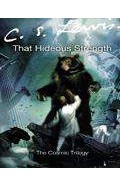
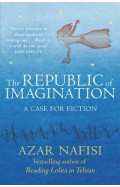
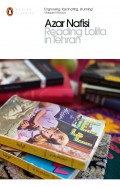

-120x187.jpg?q6)









